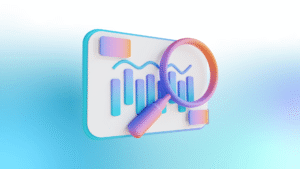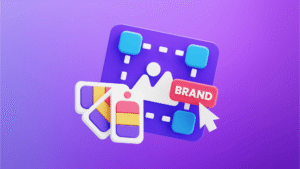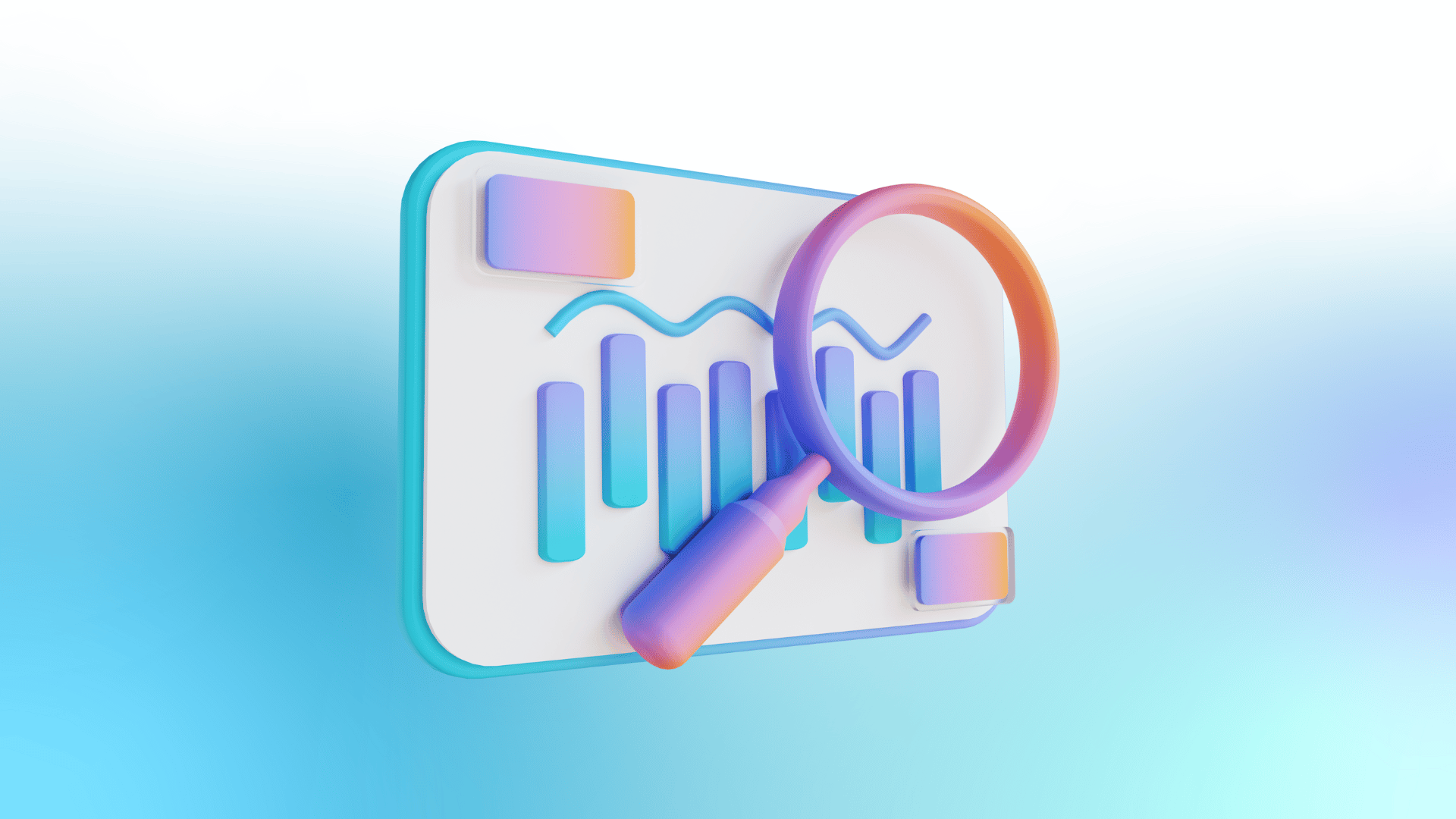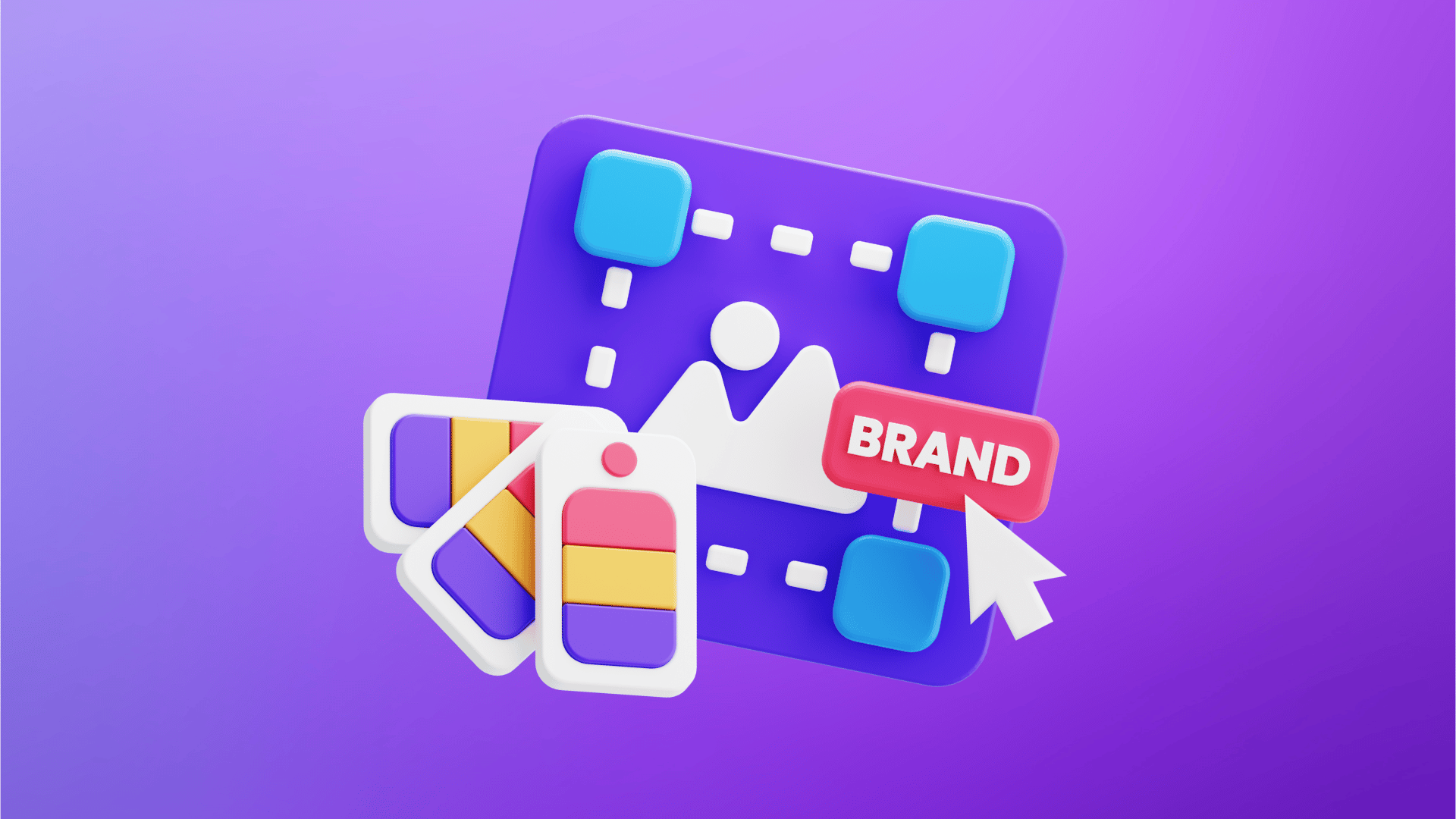Have you spent hours clicking through endless search results to find a straight answer? Traditional search engines bombard us with ads and multiple links. AI search engines are changing the game by providing direct answers to our questions.
These new AI-powered search platforms show impressive results after real testing. They go beyond simple keyword matching and page rankings. They use advanced AI technology, as with ChatGPT, to understand and directly answer our queries. Perplexity offers premium features at $20/month and Google’s Gemini Advanced costs $19.99/month, so knowing which platform delivers value is significant.
Our comparison of top AI search engines will help you make an informed choice. The analysis covers everything from free options to premium features, and from privacy-focused alternatives to complete search solutions that will upgrade your search experience.
Perplexity AI: The Most Advanced AI Search Experience

Image Source: Voiceflow
Perplexity AI stands out from other AI search engines by combining multiple language models with up-to-the-minute web indexing. The platform utilizes GPT-4, Claude 3, and proprietary models to give precise, contextual answers.
Key Features and Capabilities
Quick Search and Pro Search modes make Perplexity AI powerful. Quick Search gives you immediate responses, while Pro Search asks clarifying questions to refine results. The platform also keeps indexing the web to ensure you get current information.
You can upload PDFs, CSVs, and images for thorough analysis. The system remembers context throughout conversations, so you can ask natural follow-up questions and explore topics in detail.
Pricing Plans
Perplexity comes in three tiers:
- Standard (Free): Has unlimited simple searches and 5 Pro searches daily
- Professional: Costs AUD 30.58 monthly with 300+ Pro searches daily
- Enterprise: Custom pricing based on team needs
Professional subscribers get AUD 7.64 monthly API credits and can use advanced models like GPT-4 Omni and Claude 3.
Use Cases and Applications
We designed the platform for research and finding information. It works great in academic settings by providing cited sources and complete answers. Business professionals can analyze market trends and get industry insights effectively.
The platform gets information instantly, which helps analyze news and research current events. It also helps review documents and extract data through its file analysis features.
Pros and Cons
Advantages:
- Clear source citations you can verify
- Strong free version with many features
- Works with multiple advanced AI models
- Organized way to collect queries
Limitations:
- Sometimes gives inaccurate information you need to verify
- Can give repetitive responses
- Limited by third-party LLM constraints
Recent updates have brought better financial features to analyze stocks and company earnings data. The platform keeps growing its capabilities, making it a versatile tool that meets different search needs.
Google AI Search (Gemini): The Industry Giant’s Take

Image Source: The Keyword
Google has changed how users interact with search results by integrating Gemini into its search platform. The company improved its traditional search experience with AI Overviews that run on a customized version of the Gemini model.
Integration with Traditional Search
English queries in the U.S. now process 40% faster with AI-powered search. Users see AI-generated summaries next to regular search results. This hybrid approach keeps the familiar link-based structure and adds AI insights. Users have made billions of AI Overview interactions through Search Labs.
AI-Powered Features
Google Search now has these advanced capabilities thanks to the customized Gemini model:
- Multi-step reasoning for complex queries
- Planning capabilities for meals and vacations
- Live video understanding
- Customizable AI Overviews with language simplification options
Users now visit more websites when asking complex questions, showing better performance metrics. The platform keeps AI processing costs flat by matching model sizes to query complexity.
Cost Structure
Google’s AI search capabilities come in different pricing tiers:
Standard Edition:
- AUD 3.06 per 1,000 queries
- Simple unstructured search features
Enterprise Edition:
- AUD 6.12 per 1,000 queries
- Improved website search capabilities
- Additional unstructured search features
LLM Add-On Options:
- Simple: +AUD 6.12 per 1,000 queries
- Advanced: +AUD 15.29 per 1,000 queries
The platform sends valuable traffic to publishers and creators while maintaining search quality. More than two million developers actively use these capabilities, generating billions in revenue through its AI infrastructure and solutions. Results satisfaction has increased, especially among users aged 18-24.
Arc Search: Revolutionary Mobile Search Experience

Image Source: Arc Browser
The Browser Company’s Arc Search changes mobile browsing by combining AI with an efficient interface. This innovative platform differs from other search engines because of its fresh take on finding and showing information.
Unique Browse for Me Feature
“Browse for Me” sets Arc Search apart by changing how people use search results. The system scans six different sources when activated and builds a custom webpage that combines information. We designed this feature to improve efficiency. It answers your first question and predicts what you might ask next.
Arc Search’s AI does more than simple searches. During a search query, Arc Search:
- Reads and analyzes multiple sources at once
- Verifies and extracts relevant content
- Shows information in an easy-to-digest format
- Suggests related questions you might want to ask
Platform Availability
Arc Search has grown by a lot on major mobile platforms. The platform launched on iOS first and became available on Android. The Android version grew faster with several improvements:
- Voice search functionality
- Adaptable widgets
- Home screen customization options
- Native language support for Browse for Me
- Full Android 12 compatibility
The platform’s Android version proved popular with more than 100,000 downloads through the Play Store just weeks after its beta launch.
Performance Analysis
Arc Search works exceptionally well in several key areas. The browser’s interface makes one-handed operation easy by placing all controls at the screen’s bottom edge. The platform has built-in features that boost browsing:
The system blocks ads, trackers, and cookie consent notices automatically. Users find their searches work faster because of the efficient interface and smart tab management. The browser’s auto-archiving feature keeps browsing clutter-free with settings from 12 hours to 30 days.
Arc Search’s performance numbers show better search efficiency. The platform delivers results within seconds with smooth animations and transitions. The browser’s unique tab system lets users flick up on thumbnails to switch between current and previous pages quickly.
You.com: The All-in-One AI Search Platform

Image Source: you.com
You.com has grown from an AI-powered search pioneer into a detailed platform that combines multiple AI models with tailored search experiences. The platform’s updates over the past year have made it a versatile tool for both personal and professional use.
Multiple Search Modes
You.com features four distinct AI modes that cater to specific needs. Smart Mode serves as the default experience and delivers quick answers with immediate web access. Genius Mode goes further by offering advanced capabilities. It handles multi-step problem-solving and creates data visualizations through charts and plots.
Research Mode takes a different approach. It excels at generating detailed reports with extensive citations. One of the platform’s standout features lets users jump straight to cited sources and shows the exact referenced sentences.
Integration Capabilities
The platform’s API infrastructure helps developers boost their applications with immediate web data. You.com achieves a recall rate 1.5 times better than traditional search engines. The system blends with several AI models, such as:
- GPT-4 Turbo and Claude 3.5 Sonnet
- Gemini Advanced and Claude 3 Opus
- Multiple specialized AI models for specific tasks
The platform supports various third-party services. These include WhatsApp and Telegram chatbots, along with browser extensions for Chromium and Firefox.
Pricing Details
You.com offers pricing tiers that match different user needs. The free plan gives access to simple queries with a 16K context window. The Pro plan costs AUD 22.93 monthly (billed annually) and has:
- Access to advanced AI models like GPT-4o
- File uploads up to 25MB per query
- Expanded 64K context window
- Research and Custom Agents
The Team plan costs AUD 38.22 monthly (billed annually). It targets collaborative environments and offers better features like a 200K context window and zero data retention. The Enterprise plan comes with custom pricing and additional benefits. These include dedicated account management and detailed control over permissions.
The platform shows its steadfast dedication to privacy through features like private mode and customizable data retention settings. Users can also tailor their search experience by adjusting result rankings and display priorities.
Bing AI Search: Microsoft’s Innovative Solution

Image Source: Microsoft Blog
Microsoft has combined OpenAI’s GPT-4 with their proprietary Prometheus model to create groundbreaking AI search technology. This transformation has changed how people find and interact with online information.
Copilot Integration
Microsoft changed Bing Chat’s name to Copilot in Bing during November 2023. Users can now handle complex tasks right from the search interface. We processed queries through several technical breakthroughs that include a next-generation OpenAI model. This model works faster and more accurately than ChatGPT.
Microsoft’s proprietary Prometheus model connects the Bing website index with AI models. Users get relevant answers with automatic source citations that turn regular search into an interactive experience.
Search Features
Bing’s AI capabilities go beyond simple search functions. The platform gives users:
- Generative search with better answers and refined results
- Deep Search powered by GPT-4 to understand complex queries
- Up-to-the-minute data analysis with automatic summarization
- Customized responses based on search history
The system shows remarkable improvements in search relevance with the biggest leap in twenty years. Simple queries now get more accurate and contextually appropriate results. Bing Orchestrator technology adds extra context to answers to keep information fresh and relevant.
User Experience
AI-generated answers take center stage in the new layout, while traditional search results stay available in a side panel. All the same, Microsoft keeps things balanced. The experience supports a healthy web ecosystem by maintaining clicks to external websites.
Users can fine-tune their searches through natural conversation in the platform’s chat feature. The system keeps familiar elements while adding innovative features like automatic source citation, despite major interface changes. Edge browser integration boosts functionality. Users can now summarize long documents and create content while browsing.
New data shows this search experience keeps website traffic steady while providing complete answers. The platform strikes a good balance between innovation and publisher interests. Users get better search capabilities without hurting the broader internet ecosystem.
Brave Search AI: Privacy-Focused Alternative

Image Source: Brave
Brave Search AI’s mission revolves around privacy, which makes it unique among AI-powered search engines. The platform provides search capabilities while protecting personal data security, which forms its foundation.
Privacy Features
A unique three-layer protection system defines Brave Search. The platform’s Shield technology blocks trackers, cross-site cookie tracking, and fingerprinting attempts. Advanced privacy protections reduce network server calls and block bounce tracking. The platform’s core policies ensure data protection by avoiding user information collection.
The platform goes beyond simple protection in its steadfast dedication to privacy. Users can search without the engine creating profiles or storing their search histories. All conversations with Answer with AI stay ephemeral, which means the system never stores them.
Search Capabilities
Brave Search’s independent index forms the life-blood of its search infrastructure and processes more than 36 million queries daily. The platform’s Answer with AI feature combines information from multiple sources and provides complete responses while maintaining transparency through source citations.
The search engine supports various query types:
- Navigational queries for finding specific websites
- Informational queries for fact-finding and how-to guidance
- Commercial queries for product research
- Transactional queries for completing specific actions
State-of-the-art artificial intelligence powers the platform with advanced machine learning models throughout its technology stack. Answer with AI makes use of open-source LLMs, including Meta Llama 3 and Mistral, to deliver accurate and contextual responses.
Performance Metrics
Strong performance characterizes the platform across multiple dimensions. Brave Search has become the fastest-growing independent search engine since Bing and processes more than 1 billion queries monthly. The system’s Web Discovery Project maintains high data quality standards by indexing 50-70 million new pages daily.
The search index contains over 19 billion webpages. Quality remains high through user-driven content discovery, which helps filter out spam and irrelevant content by focusing on pages users actually visit.
The platform’s client-side aggregation approach keeps all session data on the user’s browser, eliminating the need for user identifiers. This method allows Brave Search to collect anonymous, total metrics that improve service quality without compromising individual privacy.
SearchGPT: OpenAI’s Search Revolution

Image Source: Tech Pilot
OpenAI’s SearchGPT launched in July 2024 brought a radical alteration in information retrieval by combining AI models with up-to-the-minute data analysis. This innovative search tool gives immediate, accurate responses and stays transparent through complete source attribution.
Unique Features
SearchGPT’s architecture generates direct answers instead of traditional link-based results. The platform runs queries through a fine-tuned version of GPT-4o that extends novel synthetic data generation techniques. The system decides when to use web results based on query complexity, but users keep control over web searches.
The platform’s distinctive capabilities include:
- Interactive stock graphs and dynamic data visualization
- Contextual follow-up capability that maintains conversation flow
- Up-to-the-minute information access through Bing’s index integration
- Source transparency with clickable citations
The system shows a 40% reduction in search latency for English queries. SearchGPT’s quick understanding and response generation makes searches more accessible and faster.
Access Requirements
SearchGPT has blended into ChatGPT and users can access it in regions where ChatGPT operates. The platform’s availability differs by subscription tier:
- ChatGPT Plus and Team users have immediate access
- Enterprise and Education users receive access in phases
- Free users gain access over subsequent months
OpenAI’s strategic collaborations with media organizations boost content visibility and authority. These collaborations include agreements with Associated Press, Reuters, Financial Times, and several other prominent publishers.
Future Potential
SearchGPT’s development roadmap reveals ambitious plans for improvement. The system’s integration with ChatGPT marks OpenAI’s complete entry into the search market. Unlike traditional search engines that rely on keyword matching and predefined indices, SearchGPT employs AI to understand and respond to user queries.
The platform’s future capabilities target several key areas. The system handles sensitive topics carefully, such as election-related queries, and works to raise authoritative sources. OpenAI has added measures to ensure accuracy and reliability through factual verification and source transparency.
The platform maintains strong publisher relationships and lets content providers control how their content appears in ChatGPT, though they don’t automatically get higher priority in queries. This integration ended up making AI-powered search accessible to more people for everyday use while focusing on accuracy and responsible content use.
Comparison Table
| Aspect | Perplexity AI | Google AI Search (Gemini) | Arc Search | You.com | Bing AI Search | Brave Search AI | SearchGPT |
|---|---|---|---|---|---|---|---|
| Key Features | – Quick & Pro search options – Document analysis – Live web indexing | – AI Overviews – Step-by-step reasoning – Live video understanding | – Browse for Me tool – Automatic scanning of 6 sources – Single-hand operation | – Multiple AI modes (Smart, Genius, Research) – Source citations – File upload support | – Copilot integration – Deep Search – Live content analysis | – Independent search index – AI-powered answers – Web Discovery Project | – Interactive stock charts – Smart follow-up questions – Live information updates |
| Pricing | – Free tier – Professional: AUD 30.58/month – Enterprise: Custom | – Standard: AUD 3.06/1000 queries – Enterprise: AUD 6.12/1000 queries | Not mentioned | – Free tier – Pro: AUD 22.93/month – Team: AUD 38.22/month | Not mentioned | Not mentioned | Available through ChatGPT subscriptions |
| Technologies Used | – GPT-4 – Claude 3 – Proprietary models | – Gemini model – Custom AI infrastructure | – AI-powered browsing – Native language processing | – GPT-4 Turbo – Claude 3.5 Sonnet – Gemini Advanced | – GPT-4 – Prometheus model – Bing Orchestrator | – Meta Llama 3 – Mistral – Open-source LLMs | – Fine-tuned GPT-4o – Bing index integration |
| Unique Selling Point | Advanced multi-model system with live indexing | Standard search boosted with AI capabilities | Game-changing mobile browsing experience | Flexible search options with multiple AI modes | Seamless Copilot experience with cited sources | Private search without data collection | Direct answers with transparent sources |
| Privacy/Data | Source citations available, data handling details unclear | No specific details provided | Stops ads, trackers, and cookie notices | Adjustable data retention options | Maintains traditional search structure | No profiles or search history stored | Limited to users who log in |
Conclusion
AI search engines have changed the way we look for and understand information online. We analyzed seven leading platforms, and each one shines in its own way.
Perplexity AI excels with its powerful multi-model system. Google’s Gemini brings high-end features to regular users. Arc Search makes mobile searches better than ever, while You.com lets users customize their AI modes. Bing AI Search makes good use of GPT-4. Brave Search puts privacy first, and SearchGPT shows how OpenAI wants to generate direct answers.
These platforms work differently, but they share the same goals. They want to give faster and more accurate results. They also show where their information comes from. Users can choose between free options and paid subscriptions based on what they need.
These AI search engines are the first wave of truly smart search tools. They understand context and give direct answers. They stay accurate and protect user privacy. This shows how far we’ve come from old-school search engines.
The search world looks bright as these platforms keep getting better. Users have more choices now, and each platform has its own special features that match different needs and priorities.
Author
-

Managing Director of one of Australia's leading Digital Marketing Agencies... With over 7+ years of hands on experience in SEO, managing both national & international organisations SEO strategy and campaign distribution. Having won several international awards (Search Awards, Clutch, TechBehemoth etc.) for both paid media and search campaign success... He is a front runner in leading search and defining the playbook for the Australian market.
View all posts











